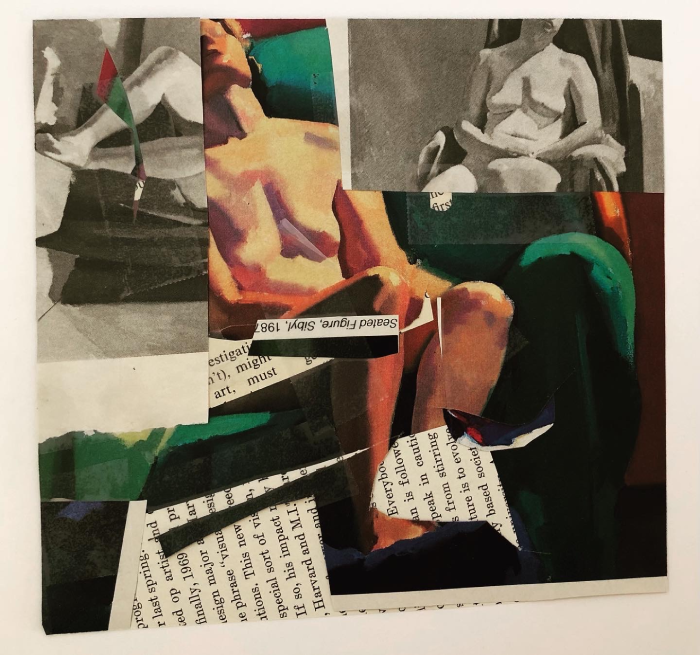Flash Nonfiction
by Parvathy J

I tell stories. It could be anyone, we could be anywhere, doing anything.
After hours and days of debating in inner monologues, when I feel safe enough or mischievous enough, l turn to them with a mouth drowning in a smile and eyes barely contained in their home sockets and whisper, “Sooooo, I don’t tell this to anyone often, but it is time you know — I am not from here, I am an alien.”
Some swallow my words and their shock for so long that I get distracted and move on from the conversation. Some ask me questions and share a story. Some laugh in disbelief and follow it up with a boring version of “You are so cute/quirky/weird,” which makes me want to throw up. Some scan me up and down like a school principal sizing up a truant while I question my people choosing abilities.
I have never told anyone the rest of that story. I didn’t know how to.
— I am not from here, I am an alien —
These were all the words I had. Not all truths knock at your heart with words, do they.
I am a detective. Skipping from clue to clue mystery to mystery revelations to revelations misery to triumph. Always searching, always in pursuit. To uncover more and more and a little more knowledge. With each solve, I absorb a quantum of human-ness. I pick up words, body language; I collect and piece together nuggets of ways-to-be in this world. I learn how to be who people want and expect and demand me to be.
The puzzle of belonging is a shapeshifter. I learn and learn and learn and adapt but there’s always more. I turn to stories.
Google says Sayaka Murata’s Earthlings is an otherworldly coming-of-age tale of a woman who believes she is an alien, and I agree. It is that, but much more to me. Earthlings gave me words to water my story. The 120-page novel tore open several wounds, and unearthed a puzzle that makes me cower in helplessness of incomprehension and not-knowing.
A Master’s classroom of 24 women; walls painted a bright yellow. We chuckle at first, raise our eyebrows, and stew in collective discomfort when the Gender Studies professor tosses a question at us.
“Where does our body end and the world begin?”
We talk of epidermis, uterus, limbs. We talk of violation, personal space.
I clear my throat several times, quietly. I almost raise my hand to speak up. A familiar fear winds itself around my chest, leaving me flushed.
I scribble in my notebook with no lines, “But my body is never just a body — a beating heart packed in bones and flesh. Constantly looked at, perceived, policed, sexualized, objectified. Why am I considered a person only when I am clothed? When naked, I crumble to flesh, sex, muse, fantasy.”
If the world claims and enforces control over my body more than I can, is it still mine?
“Why can’t I just be me, and just be?” I rage, cry and sigh to my people.
One night, a friend opens her arms, gathering me in a hug — “You can, you know, just be… at least here, for sure.”
Another night, four of us lie over and on each other. Talking, swapping stories as laughter gurgles out of our bodies. Water spills over me when I try to drink some from the lime green bottle with a wide mouth. The V-neck of the lavender frock — with the white embroidered flowers — that covers very little of my breast — clings to my skin.
Nodding at C, who is sharing the antics of her father, who is turning more conservative with each passing day, I slip the damp straps of my dress over both my shoulders. Saggy boobies readily rest on the tummy-hill top. The ridiculousness of male ego and their need for control over others draws out a thunder of laughter and rage. I talk about my once communist father and his transition to a staunch supporter of a genocidal fascist.
Power opens and shuts boundaries, love blurs them.
One pair of breasts and an unclothed torso attached to my mouth from where my voice emerges breath freely. We talk through the night. Around dawn, when I drag myself out of the bed to return to my room, one of them — half asleep — tugs at the hem of my dress. A sea breathes in me. I stroke her hair, kiss her forehead and lie down with her.
I am in my planet.
Appeared in Issue Fall '24
Nationality: Indian
First Language(s): Malayalam
Second Language(s):
English,
Hindi
Das Land Steiermark

Supported by:


Comments on "I Am an Alien"
Please log in to submit a comment.
Login